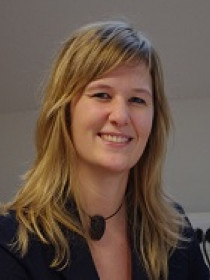About Sofie
Marien’s research interests include trust of citizens in political institutions and citizens’ political engagement. She has developed extensive expertise on inequalities in citizens’ political engagement.
Contributions
Publications
"Economic Crisis and Levels of Political Participation in Europe, 2002-2010: The Role of Resources and Grievances" (with ). West European Politics 38, no. 3 (2015).
Examines the impact of the economic crisis on political participation. Argues that because resources are of key importance to engage in politics, economic growth is positively associated with non-institutionalized political participation such as demonstrating, but that in exceptionally negative conditions, such as the recent economic crisis, suddenly imposed grievances are likely to increase protest behavior despite the decrease in available resources to participate.
"Is Online Participation Distinct from Offline Participation? A Latent Class Analysis of Participation Types and Their Stratification" (with ). Political Research Quarterly 66, no. 1 (2013): 91-101.
Discusses the effect of online activism in engaging people who have historically been less engaged in offline politics – particularly young people, women and people with less education and income. Argues that online activists are increasingly likely to include young people and women, yet they continue to be wealthier and better educated than the rest of the U.S. population.
"School Experiences, Classroom Climate and Political Trust: A Two-Year Panel Study among Belgian Late Adolescents on the Impact of School Environment Characteristics on Political Trust" (with ). International Journal of Public Opinion Research 24, no. 2 (2012): 208-224.
Argues that when young people learn about politics at school, their understanding of the political system increases which in turn, also increases their trust in the system and its institutions. Also argues that participating in a democratic system is more important than learning about democratic politics and that through socialization in an open classroom climate in which open respectful discussions can take place and pupils can participate in the development of the rules, political trust develops.
"The Effect of Electoral Outcomes on Political Trust. A Multi-Level Analysis of 23 Countries" Electoral Studies 30, no. 4 (2011): 712-726.
Argues that political trust is highest in countries with very proportional as well as in countries with very disproportional election outcomes and lowest in countries that fall in between. Discusses how election outcomes that are more fully inclusive and those that provide more accountability can both lead to higher levels of political trust.
"Inequalities in Non-Institutionalized Forms of Political Participation: A Multi-Level Analysis of 25 Countries" (with ). Political Studies 58, no. 1 (2010): 187-213.
Discusses the effect of changes in forms of participation on political equality. Argues that non-institutionalized forms of participation increase patterns of inequality due to education, but strongly reduce or even reverse gender and age inequalities.
